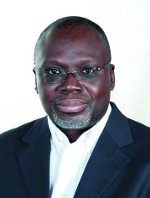In depth
Rebuilding the army of Côte d'Ivoire: problems and prospects

Azoumana Ouattara
The Ouagadougou Political Agreement signed in March 2007 relaunched the disarmament and reunification process of the Côte d'Ivoire Security and Defence Forces (FDS) and the Armed Forces of the Forces Nouvelles (FN), which had been fighting each other since 2002.
On 17 March 2011, President Allassane Ouattara signed a decree ordering the unification of the Côte d'Ivoire Security and Defence Forces (FDS) and the Forces Nouvelles (FN): "Under the terms of the Ouagadougou Agreement, and in order to end all the conflict, I have just signed a decree that creates the Republican Forces of Côte d'Ivoire." In fact, it was a de facto integration of the FAFN in the state security apparatus, holding out the olive branch to the FDS so that they could swear loyalty to the newly elected president, and establishing the framework for a future reunification of the armed forces in conflict. Indeed, the Forces Républicaines de Côte d'Ivoire (FRCI) was created as a framework to unify the two armies. The problem lies in the fact that instead of having a unified army, only the FAFN have been integrated into this structure, while the FDS have mostly adopted an attitude of wait and see. The military, police and gendarmes have remained more or less to one side; there has been no fraternization.
The most important point to note is that despite the Ouagadougou agreements, disarmament has never been implemented. Indeed, the electoral and post-electoral pressures have led to an exponential increase in the stocks of weapons, which are now a threat to subregional security. The reconstruction of the security sector has become more complex in this case. The creation of the FRCI is still a long way from having solved the political and military problem of reunification of previously warring armies. It is no coincidence that the Republican Forces are still thought of as the northern army and receive nicknames like "the Frères Cissé".1
The name of the new army is still a problem in itself: since the FDS were considered Gbagbo's army, does that mean that the FRCI are the army of President Ouattara? Now that the Houphouëtistes in power, are they not interested in reviving the name FANCI (National Armed Forces of Côte d'Ivoire) to try and build a republican army of development?
The most difficult problems to solve are not those related to the redefinition of the format, the missions and the weapons of the unified army. Instead, they are related to the creation of a new Ivorian soldier, free of blackmail, the ethnification of weapons and the politicization of military behavior. Today's forces are a long way from establishing a republican relationship with the populations that have suffered from the military violence. In some ways, the reconstruction needs to provide the unified army with values.
Partisan struggles for control of coercive structures have led to permanent repeal of the regulations on recruitment, training, promotions and appointments. In addition, the Ivorian army is in crisis because it does not know what to do with the vast amount of young recruits who have joined as a result of the successive crises, to the point that the number of army troops has increased to 50,000 men in a decade, as well as the 10,000 men in the FAFN. The heterogeneity of recruits is now a problem for cohesion and discipline. It is necessary to resolve the difficulties inherent in the relationship between the army on the one hand and citizens on the other. The new government was right to make a priority of the "people's expectations as regards defence."
1. Translator's note: "Cissé Brothers" is a term that comes from the French abbreviation for FRCI ("FR" - "Frères" and "CI" - "Cisse") and is used as a term of ridicule for these forces, either because it evokes the name of a family business, rather than a national institution, or because Cissé is a very common surname in the north, and not the south. (Back)